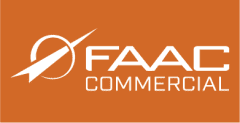Finding the Right Workforce Development Partner for Your Low-No and BBF Grants
Published

The Federal Transit Administration’s Low or No Emission and Bus and Bus Facilities (BBF) competitive grant program funds state and local governmental authorities to purchase or lease zero-emission and low-emission transit buses and acquire, construct, and lease required supporting and workforce development facilities. Naming a“development partner” in your grant application offers a huge advantage: doing so automatically fulfills the requirement for a competitive procurement process, decreasing the application decision timeline. That means a shorter road from funding to results in your community.
FAAC has experience working with agencies as a named partner on Low-No and BBF grants, helping them fulfill the workforce development requirement rolled into that process. FAAC has a solid track record in advancing simulation training in mass transit. Twenty-five years ago, FAAC developed the world’s first immersive bus transit training simulator—a development that APTA named one of the top 100 public transit safety improvements of the last 150 years.
Funding Success With FAAC
We are very fortunate that over 20 agencies have approached FAAC to be a “named partner” in their Low-No or BBF grant applications.
For example, FAAC was the named partner for a Low-No application submitted by Santa Maria Regional Transit (SMRT) in Santa Maria, CA. SMRT was ultimately awarded a $6.6 million Low According to SMRT transit director Gamaliel Anguiano, their agency definitely benefited from being able to use a named partner: “You can find a solution that is already time-proven, time tested, and identify them as a partner. The award of the grant is then also the award of the contract. Low-No really facilitated our opportunity to onboard this equipment in a way that might have been difficult through a traditional RFP… Outside of the Low-No program, this is a much slower process that delays the absolutely beneficial deployment of new technologies and training.”Additionally, agencies in Augusta, GA [Augusta Transit], Little Rock, AR [Rock Region METRO], Santa Cruz, CA [Santa Cruz METRO], and Billings, MT [MET Transit] have also recently experienced success with FAAC as a named partner in their Low-No and BBF grant applications.
Justin Avery, Rock Region METRO CEO, says, “We are excited to receive this award, ensuring our fleet is kept in safe, good, more sustainable condition. We are appreciative of the FTA’s focus on aiding public transit agencies with innovative bus technology that helps the industry attract and retain Operators and look forward to implementing the bus simulator in driver training.” FAAC designed a custom closed-cab training simulator to meet their training needs, with all the equipment and features a driver needs to master ZEB driving skills. Especially notable is the 340-degree field of view and eight visual displays, along with motion feedback, to simulate a bus driving experience within various scenarios.

